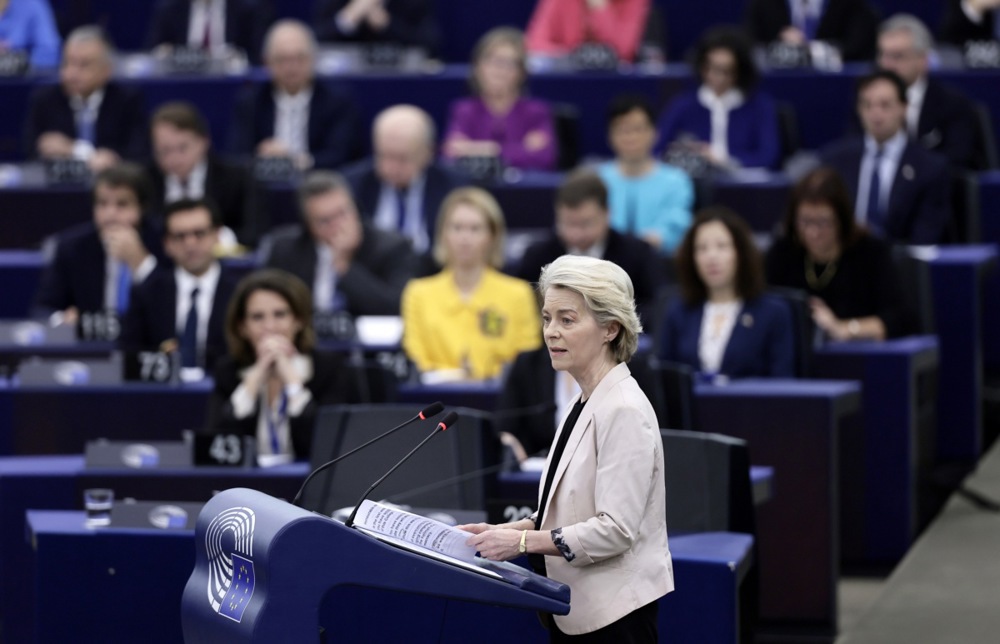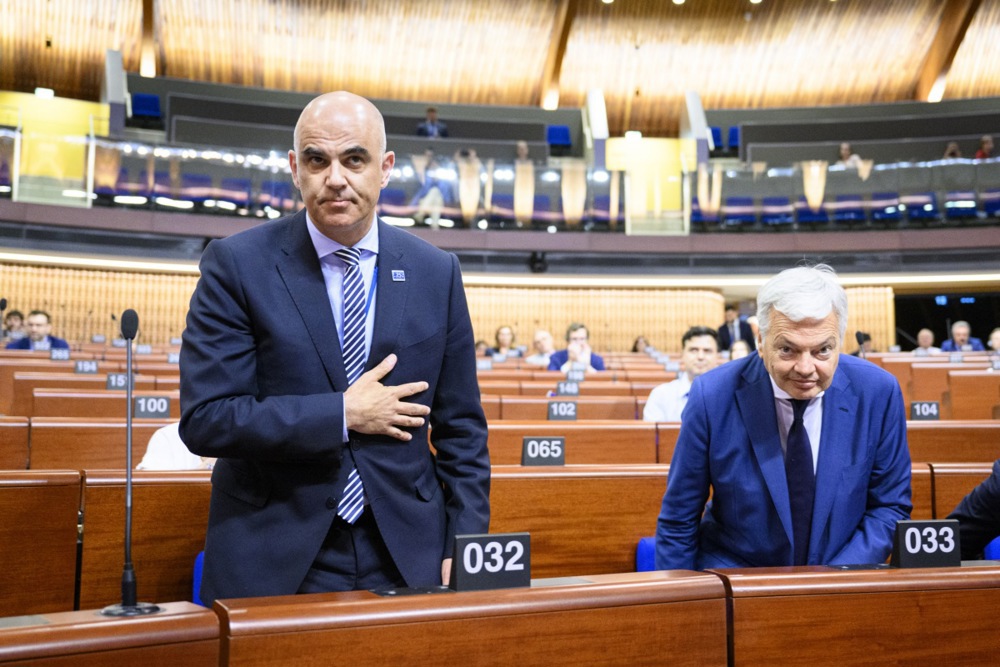Didier Reynders, who was serving as European Commissioner of Justice under EC President Ursula von der Leyen until a few days ago, has been put under investigation by Belgian authorities.
On the evening of December 4, Belgian newspaper Le Soir and investigative journalist collective Follow The Money (FTM) reported that Reynders was suspected of alleged money laundering and had been interrogated by the Belgian police.
“For about a decade, Reynders allegedly bought lottery tickets with dubious money to launder the profits back into his account,” FTM wrote.
According to two unnamed sources close to the investigation, Belgian police have raided several addresses linked to Reynders, including his home, in light of the investigation.
The searches are part of a months-long probe into money laundering, according to the sources. Investigators waited to move until Reynders’ term as Commissioner ended on December 1, when he lost the immunity that came with the post.
Due to his past roles as a federal minister and Commissioner, he currently still enjoys a level of legal immunity. This means he can be investigated and his premises searched but he cannot be detained. If prosecutors wanted to pursue such legal action, they would first need to have his parliamentary immunity fully lifted.
“The office of the Brussels Prosecutor-General confirmed the existence of a money-laundering investigation but declined to comment further. Reynders could not immediately be reached for comment,” FTM reported.
He is suspected of having allegedly laundered money for some years through the National Lottery, an organisation for which he was responsible between 2007 to 2011.
According to FTM and Le Soir, a source claimed that Reynders was suspected of having purchased e-tickets – vouchers of €1 to €100 that can be transferred to an account with the National Lottery.
From that lottery account – and with cash money – he is alleged to have participated in lottery games and transferred the laundered returns to his private account
Since the sources of the cash were said to be unclear, he will now need to prove its legal origins.
The National Lottery and the Belgian Financial Intelligence Processing Unit (CTIF-CFI) alerted the Belgian prosecutor’s office.
“According to CTIF-CFI, suspicious operations for a relatively significant amount of money had taken place over a long period of time,” FTM said.
“Reynders allegedly started money laundering while he was still active in Belgian politics, but no longer in charge of the National Lottery. He is suspected of having continued this practice during his mandate as Commissioner.”
Money laundering via lottery tickets has been used before in Belgium, where certain lottery games offer win chances between 69 and 78 per cent, making them attractive for those wishing to launder cash.
Since winnings from games of chance are considered to have a lawful origin, these high-return scratch cards provide an ideal mechanism for converting illicit funds into seemingly legitimate income.
The practice is often connected with drug dealers or other criminal groups.
Gambling companies are also subject to anti-money laundering regulations and must maintain an internal compliance service tasked with detecting and reporting potential money-laundering pathways to the CTIF-CFI.
Reynders had served as a Commissioner from 2019. In June this year, he lost his bid to become President of the Council of Europe. He came last in the final ballot, garnering just 46 votes in the 306-member Council parliamentary assembly.
Reynders has been a Belgian political heavyweight for decades. He was Belgian finance minister between 1999 and 2011 and foreign minister until 2019.
Despite his prominent career, he has been subject to official probes more than once.
In September 2019, Belgian police investigated Reynders over allegations of corruption and money-laundering related to the construction of the Belgian embassy in Kinshasa, capital of the Democratic Republic of the Congo. The inquiry also covered the lease of a federal police headquarters among other matters but was discontinued due to lack of evidence.
Reynders has consistently denied all accusations against him.
Both Reynders and the Brussels Prosecutor-General have been contacted by Brussels Signal for a reaction.
The Attorney General’s Office in Brussels confirmed to Brussels Signal that searches have been conducted as part of an investigation into potential money laundering practices.
“The criminal investigation follows reports from both the National Lottery and the Financial Intelligence Processing Unit (CFI) regarding suspicions of money laundering,” the spokesperson said.
“An investigating magistrate has been appointed to examine the case. The criminal investigation is currently in progress.
“Given the legal confidentiality of the investigation, we are unable to provide further information at this time.”





